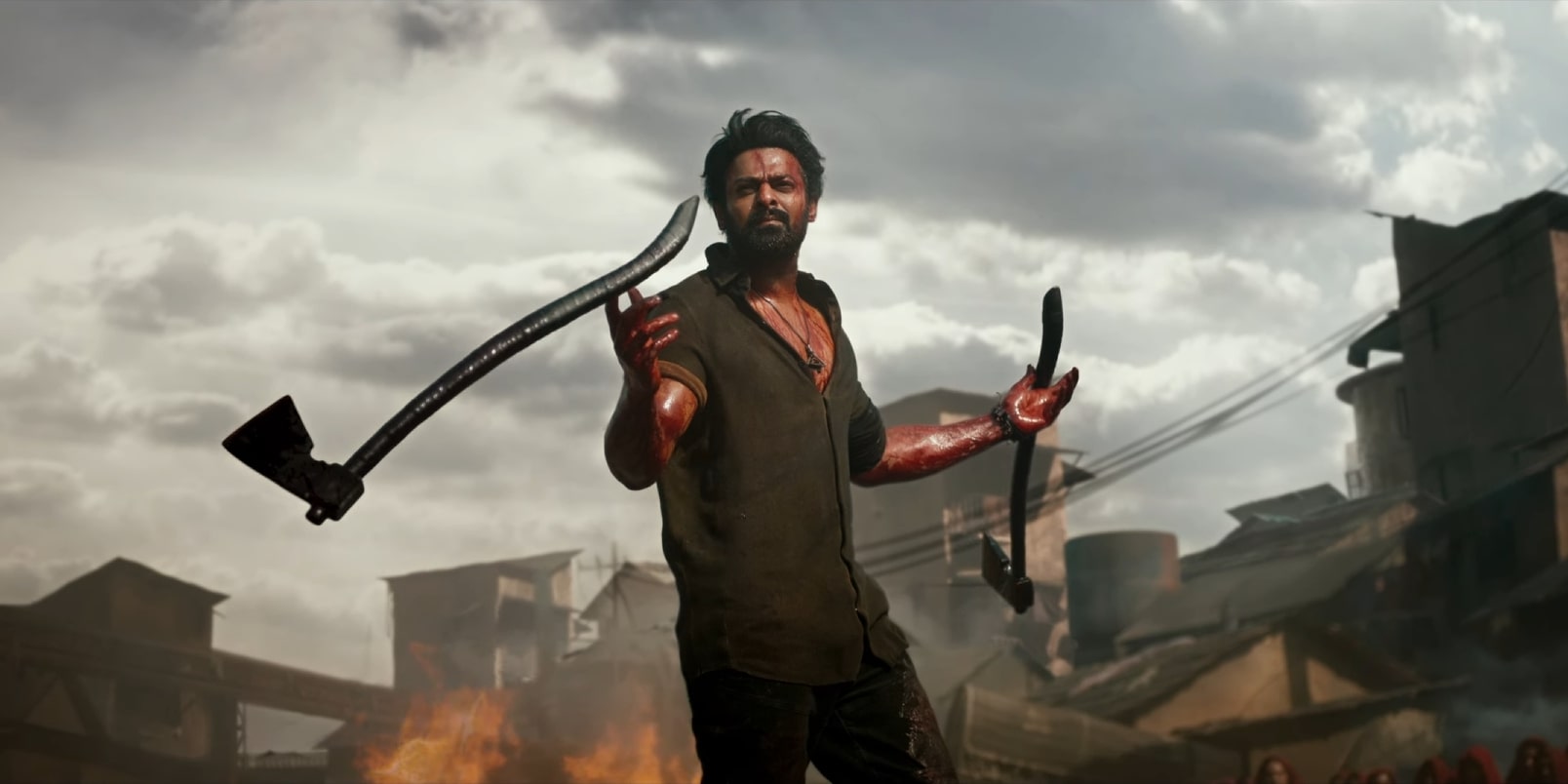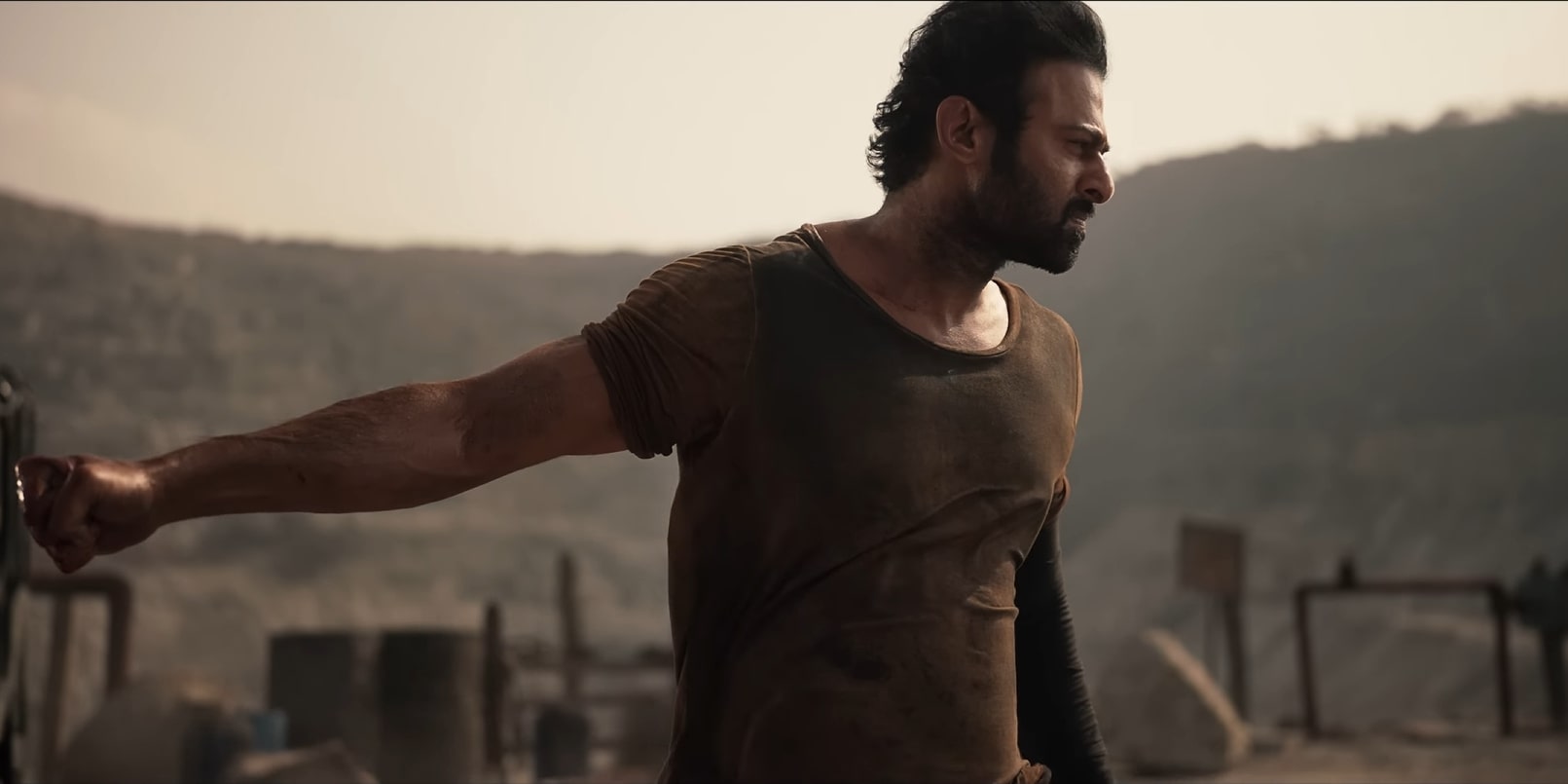Directed by the wildly acclaimed Prashanth Neel, ‘Salaar’ is the tale of two best friends Deva and Vardharaja, who are close enough to give their lives for one another. They live in a historically isolated yet advanced tribal civilization sitting on extreme wealth, with Vardharaja’s father, Raja Mannar, as the ruler. Deva leaves their land at a young age, swearing to his friend that he will return whenever he is called upon. Years later, when Raja Mannar is about to crown Vardharajar as the new ruler, his enemies and ministers begin a coup d’état. They hire powerful foreign armies to invade the nation, and Vardharaja turns to his childhood friend in his most dire hour of need, the indomitable Deva.
The riveting story of brotherhood and friendship takes place in a grand dystopic city with a thousand-year-long history of bloodshed. Watching the intricate cultural and political dynamics of the self-governing city, you may wonder if an actual place like this exists, and if there is any real-life basis to the story of ‘Salaar.’
Inspiration Behind Salaar
‘Salaar’ is not based on a true story, and Khansaar is a fictional city created by the filmmakers using a studio in Ramoji Film City and visual effects. When talking about how he came up with the name for the city, director Prashanth Neel said the name came to him and sounded right, in addition to starting with “K” just like his incredibly successful ‘KGF’ films. The fictional city is a wealthy dystopia, something the filmmaker says he is attracted to creating, as he had done with the Kolar Gold Fields’ industrial empire.
While ‘Salaar is not based on a true story, it comes very close to being based on the director’s other work. ‘Salaar’ shares undeniable similarities with Prashanth Neel’s debut film, ‘Ugramm’, and is a remake of the Kannada-language film, with the director admitting it to a certain extent. Whether it is with plot points, characters, or themes, ‘Salaar’ borrows substantially from its 2014 predecessor. Also, the film is canonically unrelated to ‘KGF’, with its thematic similarities being attributed to a similar style of filmmaking used by Prashanth Neel.

The 2014 ‘Ugramm’ sees its protagonist, Agastya living a quiet life as a mechanic, similar to Deva from ‘Salaar.’ He hails from Mughor, considered a lawless dead zone by the rest of the country, the region contains deadly gangsters and a history drenched in blood. Because of a childhood promise Agastya made to his best friend, Baala, he captures the entire region for him, defeating all the biggest gangs there. Just with a brief introduction of the film, one can see striking similarities between Prashanth Neel’s debut film and ‘Salaar.’ The vow made to a childhood best friend is honored by capturing a land of bandits and gangsters, separated from the rest of the world because of its violence and wealth. Major differences between the films arise in the focus of the story, the budgetary gap, and the target audience.
‘Ugramm’ focuses more on romance while world-building in the background with character exposition and narration, and the movie was targeted to regional audiences. ‘Salaar’ has a massive budget, and focuses much more on world-building, going back a thousand years and visually retelling the story of Khansar and its culture, while being targetted to a national, and even global audience. Prashanth Neel initially denied that the film was a remake, but in a later interview said, “I always envisioned the audience watching Ugramm in a packed theatre, it wasn’t fulfilled during its release. Despite KGF’s success, I couldn’t move forward without doing justice to that story.” The director was unhappy with the success he felt his story deserved in ‘Ugramm.’ And has therefore fleshed its premise out, added national talent into it, and stretched the movie into multiple parts, essentially remaking ‘Ugramm’ with ‘Salaar.’
Prior to even the film’s trailer being released, there was speculation that the story of ‘Salaar’ will take place in the world of ‘KGF.’ The gritty cinematography and backdrops, the dark color palette, and the strikingly detailed world-building created a similar feel to the 2018 blockbuster. But director Prashanth Neel clearly stated that this is not the case and that the world of ‘Salaar’ is a completely new one built to narrate a different story. In an interview, he expressed how he has always been captivated to see a whole new world in films and focuses on dystopian world-building to capture that thrill. the story of ‘KGF’ focused on the Kolar Gold Fields, and how an empire was built around them. Similarly, ‘Salaar’ focuses on the brutal tribes in Khansaar, the wars they fought, and the clashing dichotomy of their historic cultural inclinations and technologically modern civilization.
Therefore, we can say with reasonable certainty, that ‘Salaar’ is a much bigger and flashier remake of ‘Ugramm,’ with themes, motifs, and a level of world-building, that Prashanth Neel has come to be recognized for through his ‘KGF’ series.
Read More: Salaar: All Filming Locations of Prabhas’ Action Thriller


You must be logged in to post a comment.